Why Social Movements Matter
Published by Rowman & Littlefield International Ltd.
Unit A, Whitacre Mews, 2634 Stannary Street, London SE11 4AB
www.rowmaninternational.com
Rowman & Littlefield International Ltd. is an affiliate of Rowman & Littlefield
4501 Forbes Boulevard, Suite 200, Lanham, Maryland 20706, USA
With additional offices in Boulder, New York, Toronto (Canada), and Plymouth (UK)
www.rowman.com
Copyright 2018, Laurence Cox
All rights reserved. No part of this book may be reproduced in any form or by any electronic or mechanical means, including information storage and retrieval systems, without written permission from the publisher, except by a reviewer who may quote passages in a review.
British Library Cataloguing in Publication Data
A catalogue record for this book is available from the British Library
ISBN:HB 978-1-7866-0781-2
PB 978-1-7866-0782-9
Library of Congress Cataloging-in-Publication Data
Names: Cox, Laurence, author.
Title: Why social movements matter : an introduction / by Laurence Cox.
Description: Lanham : Rowman & Littlefield International, [2018] | Includes bibliographical references and index.
Identifiers: LCCN 2018005953 (print) | LCCN 2018010949 (ebook) | ISBN 9781786607836 (electronic) | ISBN 9781786607812 (cloth : alk. paper) | ISBN 9781786607829 (pbk. : alk. paper)
Subjects: LCSH: Social movementsHistory. | Social movementsPolitical aspects.
Classification: LCC HM881 (ebook) | LCC HM881 .C69 2018 (print) | DDC 303.48/4dc23
LC record available at https://lccn.loc.gov/2018005953
 The paper used in this publication meets the minimum requirements of American National Standard for Information Sciences Permanence of Paper for Printed Library Materials, ANSI/NISO Z39.481992.
The paper used in this publication meets the minimum requirements of American National Standard for Information Sciences Permanence of Paper for Printed Library Materials, ANSI/NISO Z39.481992.
Printed in the United States of America
Introduction
Since the turn of the twenty-first century, social movements have been a constantly active presence in many different countries and continents. In the US, the dramatic struggles of Black Lives Matter against the de facto freedom of police forces to kill young black men, expressing the limited effect of the Obama election, fed into a much wider set of struggles against the Trump administration, showing just how varied social movements can be: from the Womens Marches of 21 January 2017 to individuals and groups from all sorts of previously mainstream backgrounds resigning or resisting the new regimes policies; from flash mobs at airports welcoming Muslims via coordinated resistance to immigration raids; and from new forms of anti-fascist action on the streets and online to the anti-pipeline struggles at Standing Rock and elsewhere.
In Canada and more recently the US, indigenous opposition to petroleum pipelines and tar sands extraction has increasingly been successful in facing down an industry traditionally seen as nearly unstoppable. Further south, the indigenous-based Zapatista revolution has successfully held onto its liberated zones in the Lacandon jungle for over twenty-four years, encouraging and supporting movements against neoliberalism the most recent, and most aggressive, form of capitalism around the world. In South America, powerful indigenous movements fed into the shaping of new kinds of state in Bolivia and Ecuador in particular, but which they have increasingly found themselves in conflict with. Elsewhere, a pink tide saw powerful movement struggles, from the Argentinian revolution of 2001 to the Brazilian labour and landless movements, help put left governments of many different kinds in power, a process now being rolled back against huge popular resistance: perhaps 35 million people in Brazils 2017 general strike.
In China, there are massive levels of labour unrest in its new factory zones, together with constant rural conflicts over land and environmental issues, while Tibetan self-immolation and Hong Kong pro-democracy activism continue. In India, the struggles of tribal Adivasis and of dalits outside the caste system cross with womens struggles against rape and dowry killings, while the peasant uprising in the Red Corridor forms the target for a vicious counter-insurgency campaign. In South Africa, popular struggles against the corruption and continuing inequalities of African National Congress (ANC) rule have led to increasing independence in the labour movement, which became visible in the 2012 state massacre of mineworkers at Marikana, while the shanty towns are the site of new kinds of struggle against privatisation and against clientelistic power.
In the Middle East and North Africa, long-standing tensions around Palestine and resistance to the war in Iraq fed, alongside labour struggles, democratic and feminist activism and forms of popular Islamism, into the wave of uprisings of 2011, with a series of outcomes ranging from violent repression in Bahrain via the return of military rule in Egypt to Tunisias more hopeful process of change. Meanwhile, the uprising of Gezi Park and the growth of a new left in Turkey have been met with a vicious crackdown. In the chaos of the Syrian civil war, the radical-democratic and feminist struggle of Rojavas Kurds has won the worlds attention. Across Europe, refugees fleeing the war provoked a wave of popular solidarity and direct action while racist movements have used the situation to boost their own power.
On the European periphery, Icelands saucepan revolution of 20082009 and the dramatic Greek challenge to EU austerity from 2007 to 2015 form part of a wide variety of popular experiments alongside the huge anti-authoritarian movements in Spain and the Catalan conflict, more conventional forms of protest in Portugal and Irelands widespread and sustained community-based resistance to the introduction of water meters. Elsewhere, the extraordinary democratic experience of Nuit Debout in France and the movement takeover of the British Labour Party through Momentum contrast with the rise of far-right and racist movements across much of Europe along with a thousand other struggles, large and small, ranging from workplace conflict to direct action against destructive development, from climate change organising to solidarity with refugees.
Social movements, then, are everywhere both geographically and in the different parts of the social order. They are defeated or decline as well as having their moments of winning. They are not all nice, or right. They are creative and unpredictable, resisting the lazy generalisations of journalists under deadline pressure.
In many ways, it is this last point which is hardest to take on board: movements are widespread and frequent but not routine, running throughout the social world and across societies but not homogenous. It is, after all, Coca-Cola or Vodafone which tries to sell the exact same thing with a series of branches run on identical managerial principles in different cities and languages. When movements organise, even if they ally across countries, the people involved do not do the same thing in the same way everywhere. They do not transmit a top-down policy decision, but have to work out in many different times and places, under all sorts of pressures and with very different aims and ideas, how they should proceed. This diversity, changeability and internal contradiction is part of what makes them fascinating to study seriously, and hard to describe without making a real effort.
Why Movements Arent Easy to Write About
One indication of how hard it is to talk about movements in mainstream intellectual genres is to note the jump in form that comes when movements appear. Thus, protests might appear on the dust jacket or the illustrations of a book about political economy whose analysis is relentlessly structural in focus, or as the opening anecdote to an article whose real purpose is to present as natural or unchangeable the very inequalities protested against in the anecdote. A systematic analysis of institutional injustice may end with a brief moment of moral outrage and a gesture towards the need for radical change with no serious discussion of how to achieve this. Or the phrase social movements may appear as a sort of black box, mysteriously bridging the gap between the world as it is and the world as it should be.







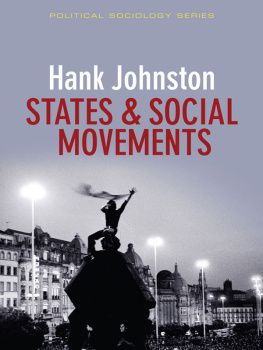




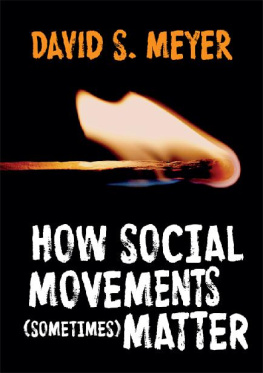
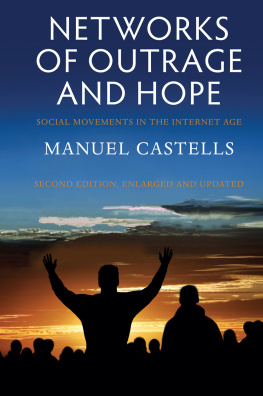
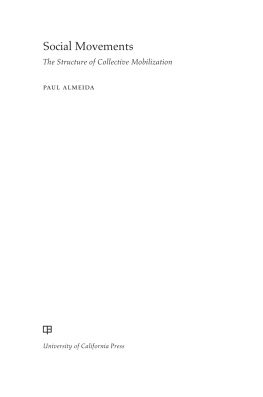

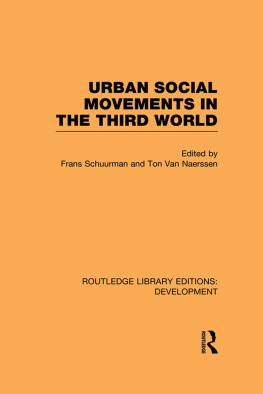


 The paper used in this publication meets the minimum requirements of American National Standard for Information Sciences Permanence of Paper for Printed Library Materials, ANSI/NISO Z39.481992.
The paper used in this publication meets the minimum requirements of American National Standard for Information Sciences Permanence of Paper for Printed Library Materials, ANSI/NISO Z39.481992.